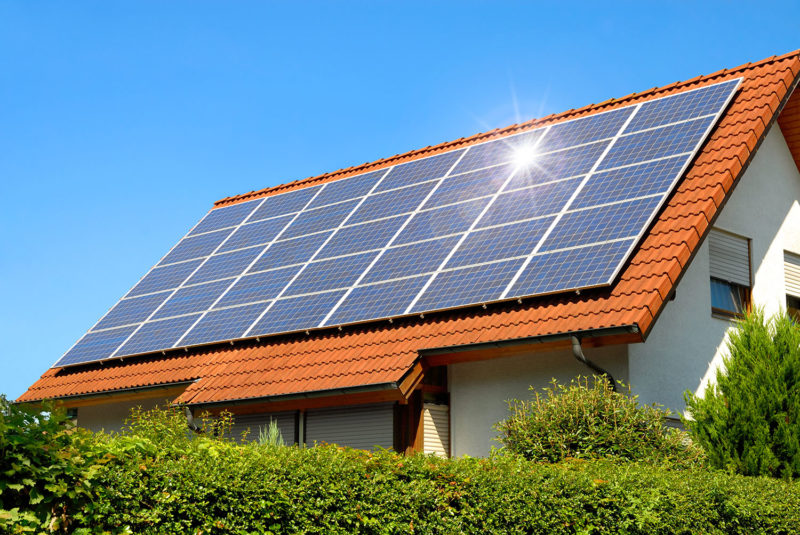

AI, the great ally of sustainable development
Artificial intelligence facilitates the fulfilment of 79% of the sustainable development goals set globally in the 2030 Agenda. We analyse a Nature Communications’ study to find out why this figure has been reached and from which areas it will be achieved.
What is artificial intelligence (AI)?
Although there is no single way to describe it, an accurate way is the one described by Britannica, understanding AI as the ability of a digital computer or robot to perform tasks that require human intelligence. In other words, taking advantage of technological tools to optimise human tasks and, at the same time, achieve challenges that until now seemed impossible. Social and economic development cannot be understood without these AI mechanisms that, today, already mark our daily lives. Facial, fingerprint and voice recognition, weather forecasting, interactive communication with machines, automated knowledge extraction and logical reasoning are some of the achievements that will undoubtedly mark this century. The focus, and the challenge, is to create and use this technology to contribute to sustainable development on a global scale.
The three pillars of sustainable development
Society, economy and environment form the basis for understanding today’s world and are therefore the key points for developing strategic actions. The Objetivos de Desarrollo Sostenible (ODS), have been created from these three pillars. 17 goals and 169 targets shape the present and future challenges on a global scale to keep technological advances at bay and ensure that every step contributes positively to social progress.
The 169 goals address all areas such as poverty, quality education, access to food, health and water for the population, clean and affordable energy and the creation of sustainable cities. The Nature Communications’ study, based on more than 60 sources, finds that the right AI development can have a positive impact on 134 of these goals, 79%. The uses of AI are multiple and we find them represented in most everyday actions.
AI to reduce social inequalities
Technology is opening up to reach all pockets, also from an economic point of view. Today, using AI through our smartphones is part of our routine. Voice, touch and fingerprint recognition, device localisation, connectivity… AI tools are being incorporated at full speed to simplify the user experience and make technology accessible to everyone. The aim is to reduce the digital divide.
But AI goes further and seeks to create inclusion mechanisms for certain groups. One example is tools such as Google Lookout or Microsoft Seeing AI that facilitate the perception of the environment for blind people thanks to the identification of objects, people or text.
At home, applications such as the Localizador de la Fundació Arrels use technology as a way to care for groups at risk of social exclusion, in this case focused on supporting homeless people. Another example is the Refugee Aid App, which provides migrants with the location of NGOs, social and humanitarian aid centres where they can be assisted.
This is one of the key points of AI, favouring interconnection between users from all over the world and facilitating the creation of meeting spaces from which to collectively tackle egalitarian and inclusive social development. Technology provides the platform, but it is the citizens who have to take action.
AI for a circular economy
In terms of sustainable development, the concept of a circular economy is emerging, in which production is aligned with the life cycle of products and moves away from the traditional system based on buy, use and throw away. AI encourages this system based on the simplest everyday actions. Beyond connecting brands and consumers, digital platforms encourage the exchange of second-hand products and, from the digital environment, a trend has been created based on reusing products and promoting DIY.
The industry is also joining production based on the 7Rs, and it is doing so in many different ways. Machines are put at the service of the environment to carry out production based on recycled materials, from tyres to making roads to clothing. The technology is also reaching into means of transport, which are increasingly sustainable and encourage co-operation over private ownership.
In the area of wealth generation, AI is also key in the business sector in terms of efficiency and process optimisation, as well as in the recruitment process. From bringing companies and job seekers together to creating automated talent selection processes. Along the same lines, investment companies such as Circularity Capital connect, through applications, investment and sustainable projects. The business fabric is adapting to environmental needs with technology as its main ally.
AI in the environment: technology to understand the world
With the aim of environmental preservation, platforms have been created that use data analysis to identify species at risk of extinction, prevent desertification in at-risk areas or favour the maintenance of forests. For a more everyday use, there are applications that encourage the consumption of seasonal food, promote local commerce or encourage sustainable consumption of fish, without forgetting the weather forecast that is key in the maritime or outdoor sectors.
At the same time, from our mobile and thanks to AI, we can calculate air quality in real time, greenhouse gas emissions or the carbon footprint we generate on a daily basis. All facilities that demonstrate that leading a sustainable lifestyle is just a click away.
Technology allows us to understand and know what is happening all over the planet, and even on other planets. The applications created through AI extend to all areas and a global vision is positive: we are managing to create a type of technology that makes life easier for humans and, above all, that strives for sustainable development, thinking in terms of the community. The real challenge in this matter, which the study emphasises, is to ensure that the creation and maintenance of this technology does not have a negative impact on the planet. AI can favour sustainable development, but this will only be achieved if the process of achieving it is also environmentally friendly.
11Onze is the community fintech of Catalonia. Open an account by downloading the super app El Canut for Android or iOS and join the revolution!





Com sempre passa, aquí el drama és veure quin mal ús se’n pot arribar a fer. L’home és malauradament especialista en això.
Molt cert, Roger, i moltes gràcies pel teu comentari!!!
👍
Gràcies, Manel!!!
La tecnologia al servei del bé comú sempre es bona👏👏👏👌
Sí, cert, això que dius és veritat. Moltes gràcies pel teu comentari, Jordi!!!
👏
Gràcies, Daniela!!!
Molt be les 7 Rs 👍
Moltes gràcies per haver vist el vídeo!!!
👍👍👍
Gràcies, Manel!!!
👍👍👍
Gràcies, Joan!!!
Molt i molt onstructiu i rs clar que seguint els 7 punts podem contribuir a la sostenibilitat utilizant l’expnomia circular aposto per ella i ho tindre6en compte ja als hàbits del dia a, dia
Exacte Alicia, si fóssim capaços de seguir-ho tots, avançaríem molt en temes de sostenibilitat.
Si poséssim la mateixa atenció mediàtica a l’economia circular que la que posem, per exemple, a la covid-19, ja tindríem molt de guanyat.
Tota la raó Pau, hem de centrar la nostra atenció i esforços en aquelles àrees que fomentin el nostre desenvolupament. Benvingut a la Plaça 🙂
Aconseguir un món millor és responsabilitat de totes les persones. La tecnologia aquesta per ajudar i el seu bon ús ens portés a aconseguir bons resultats.
La tecnologia pot ser una gran aliada, en aquest cas la IA, i si s’utilitza bé pot ser un gran avantatge contra la lluita del canvi climàtic, gràcies pel teu comentari.